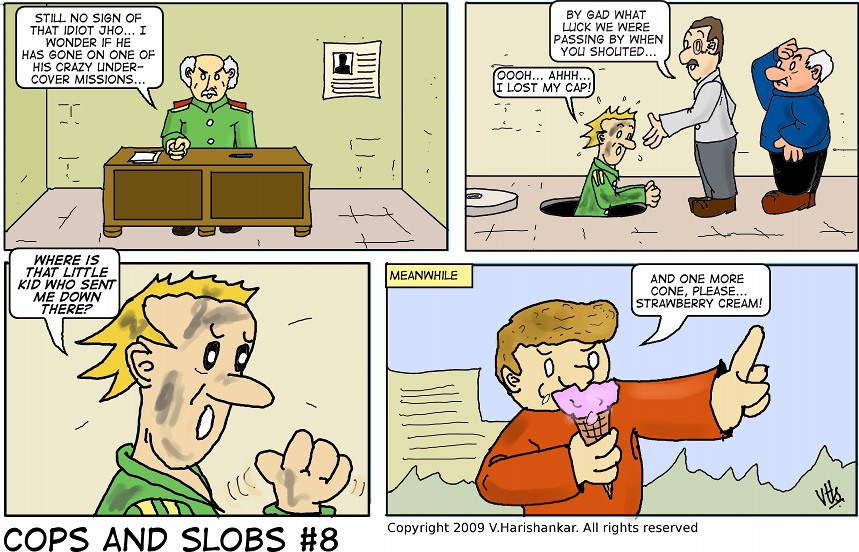 It's a very simple concept - but one that can be easily forgotten in a highly emotional and controversial case. Nevertheless almost every system of Law in democratic States guarantees the protection of the right of life and liberty to every individual and such a fundamental right must absolutely not be taken away without due process of law. And this is the basis of the "innocent until proven guilty" principle of criminal jurisprudence. Almost every system of law adheres to this in theory, but the application and measure of proof required varies and sometimes this general rule has special exceptions.
Why do we need this safeguard? Some will argue that in many cases, it might be impossible to prove a case in Law, however loudly the facts might speak for themselves. Isn't it equally unjust that a plainly guilty man be set free because of lack of evidence? That is absolutely true, but perfect justice has never existed in human administered law. The best answer is that when it comes to a choice of evils, it's better that on occasion the injustice that some guilty people be allowed to go free is preferred in order to prevent the injustice of an innocent person being deprived of liberty, reputation and practically life where imprisonment is for a number of years.
I believe that it's increasingly important to bear this in mind because trial by media (both the mainstream and online media) has become increasingly common these days especially in high-profile cases. An accused is assumed to be guilty and discussed as a criminal even before a verdict from a competent court. It's easy for lay people (and even some lawyers) to be swayed by strong public opinion which replaces fact with emotion and solid evidence with unreliable hearsay. The reason that any system of Law establishes procedures of investigation and laws of evidence is to prevent arbitrary application of justice and to give every accused the opportunity to refute the charges against him/her. Audi alteram partem (hear the other side) is inherent in administration of justice. It would be absurd to argue that every accused person must be guilty, otherwise he/she wouldn't be in the dock. Even in the fairest and most transparent systems of law, innocent people can and do get entangled in criminal cases.
If this principle is abandoned on any account, then there is a real danger that any system of criminal law will degenerate into a farce and criminal trials become little more than a formality as in a police state. It is important that the law, especially criminal law should be consistent and fair even at the cost of being slightly inefficient.
It might appear that I am a staunch human rights advocate after reading this, but actually this is nothing more than a pragmatic approach to a civilized democratic society. I think it's very important that people should be aware of their rights and be prepared to stand up for them, unemotionally and rationally. Knowledge is power.
It's a very simple concept - but one that can be easily forgotten in a highly emotional and controversial case. Nevertheless almost every system of Law in democratic States guarantees the protection of the right of life and liberty to every individual and such a fundamental right must absolutely not be taken away without due process of law. And this is the basis of the "innocent until proven guilty" principle of criminal jurisprudence. Almost every system of law adheres to this in theory, but the application and measure of proof required varies and sometimes this general rule has special exceptions.
Why do we need this safeguard? Some will argue that in many cases, it might be impossible to prove a case in Law, however loudly the facts might speak for themselves. Isn't it equally unjust that a plainly guilty man be set free because of lack of evidence? That is absolutely true, but perfect justice has never existed in human administered law. The best answer is that when it comes to a choice of evils, it's better that on occasion the injustice that some guilty people be allowed to go free is preferred in order to prevent the injustice of an innocent person being deprived of liberty, reputation and practically life where imprisonment is for a number of years.
I believe that it's increasingly important to bear this in mind because trial by media (both the mainstream and online media) has become increasingly common these days especially in high-profile cases. An accused is assumed to be guilty and discussed as a criminal even before a verdict from a competent court. It's easy for lay people (and even some lawyers) to be swayed by strong public opinion which replaces fact with emotion and solid evidence with unreliable hearsay. The reason that any system of Law establishes procedures of investigation and laws of evidence is to prevent arbitrary application of justice and to give every accused the opportunity to refute the charges against him/her. Audi alteram partem (hear the other side) is inherent in administration of justice. It would be absurd to argue that every accused person must be guilty, otherwise he/she wouldn't be in the dock. Even in the fairest and most transparent systems of law, innocent people can and do get entangled in criminal cases.
If this principle is abandoned on any account, then there is a real danger that any system of criminal law will degenerate into a farce and criminal trials become little more than a formality as in a police state. It is important that the law, especially criminal law should be consistent and fair even at the cost of being slightly inefficient.
It might appear that I am a staunch human rights advocate after reading this, but actually this is nothing more than a pragmatic approach to a civilized democratic society. I think it's very important that people should be aware of their rights and be prepared to stand up for them, unemotionally and rationally. Knowledge is power. Hari's Corner
Humour, comics, tech, law, software, reviews, essays, articles and HOWTOs intermingled with random philosophy now and thenCriminal jurisprudence and the presumption of innocence
Filed under:
People and society by
Hari
Posted on Thu, Sep 3, 2009 at 20:38 IST (last updated: Thu, Sep 3, 2009 @ 20:44 IST)
 It's a very simple concept - but one that can be easily forgotten in a highly emotional and controversial case. Nevertheless almost every system of Law in democratic States guarantees the protection of the right of life and liberty to every individual and such a fundamental right must absolutely not be taken away without due process of law. And this is the basis of the "innocent until proven guilty" principle of criminal jurisprudence. Almost every system of law adheres to this in theory, but the application and measure of proof required varies and sometimes this general rule has special exceptions.
Why do we need this safeguard? Some will argue that in many cases, it might be impossible to prove a case in Law, however loudly the facts might speak for themselves. Isn't it equally unjust that a plainly guilty man be set free because of lack of evidence? That is absolutely true, but perfect justice has never existed in human administered law. The best answer is that when it comes to a choice of evils, it's better that on occasion the injustice that some guilty people be allowed to go free is preferred in order to prevent the injustice of an innocent person being deprived of liberty, reputation and practically life where imprisonment is for a number of years.
I believe that it's increasingly important to bear this in mind because trial by media (both the mainstream and online media) has become increasingly common these days especially in high-profile cases. An accused is assumed to be guilty and discussed as a criminal even before a verdict from a competent court. It's easy for lay people (and even some lawyers) to be swayed by strong public opinion which replaces fact with emotion and solid evidence with unreliable hearsay. The reason that any system of Law establishes procedures of investigation and laws of evidence is to prevent arbitrary application of justice and to give every accused the opportunity to refute the charges against him/her. Audi alteram partem (hear the other side) is inherent in administration of justice. It would be absurd to argue that every accused person must be guilty, otherwise he/she wouldn't be in the dock. Even in the fairest and most transparent systems of law, innocent people can and do get entangled in criminal cases.
If this principle is abandoned on any account, then there is a real danger that any system of criminal law will degenerate into a farce and criminal trials become little more than a formality as in a police state. It is important that the law, especially criminal law should be consistent and fair even at the cost of being slightly inefficient.
It might appear that I am a staunch human rights advocate after reading this, but actually this is nothing more than a pragmatic approach to a civilized democratic society. I think it's very important that people should be aware of their rights and be prepared to stand up for them, unemotionally and rationally. Knowledge is power.
It's a very simple concept - but one that can be easily forgotten in a highly emotional and controversial case. Nevertheless almost every system of Law in democratic States guarantees the protection of the right of life and liberty to every individual and such a fundamental right must absolutely not be taken away without due process of law. And this is the basis of the "innocent until proven guilty" principle of criminal jurisprudence. Almost every system of law adheres to this in theory, but the application and measure of proof required varies and sometimes this general rule has special exceptions.
Why do we need this safeguard? Some will argue that in many cases, it might be impossible to prove a case in Law, however loudly the facts might speak for themselves. Isn't it equally unjust that a plainly guilty man be set free because of lack of evidence? That is absolutely true, but perfect justice has never existed in human administered law. The best answer is that when it comes to a choice of evils, it's better that on occasion the injustice that some guilty people be allowed to go free is preferred in order to prevent the injustice of an innocent person being deprived of liberty, reputation and practically life where imprisonment is for a number of years.
I believe that it's increasingly important to bear this in mind because trial by media (both the mainstream and online media) has become increasingly common these days especially in high-profile cases. An accused is assumed to be guilty and discussed as a criminal even before a verdict from a competent court. It's easy for lay people (and even some lawyers) to be swayed by strong public opinion which replaces fact with emotion and solid evidence with unreliable hearsay. The reason that any system of Law establishes procedures of investigation and laws of evidence is to prevent arbitrary application of justice and to give every accused the opportunity to refute the charges against him/her. Audi alteram partem (hear the other side) is inherent in administration of justice. It would be absurd to argue that every accused person must be guilty, otherwise he/she wouldn't be in the dock. Even in the fairest and most transparent systems of law, innocent people can and do get entangled in criminal cases.
If this principle is abandoned on any account, then there is a real danger that any system of criminal law will degenerate into a farce and criminal trials become little more than a formality as in a police state. It is important that the law, especially criminal law should be consistent and fair even at the cost of being slightly inefficient.
It might appear that I am a staunch human rights advocate after reading this, but actually this is nothing more than a pragmatic approach to a civilized democratic society. I think it's very important that people should be aware of their rights and be prepared to stand up for them, unemotionally and rationally. Knowledge is power. Cops and Slobs #9
Filed under:
Cops and Slobs comic by
Hari
Posted on Mon, Aug 31, 2009 at 18:41 IST (last updated: Sat, Jan 9, 2010 @ 19:56 IST)

Two top programmes on television currently
Filed under:
Humour and Nonsense by
Hari
Posted on Sun, Aug 30, 2009 at 20:21 IST (last updated: Sun, Aug 30, 2009 @ 21:56 IST)

and
 (These television shows can be enjoyed on any TV set all the year round at no additional cost and guaranteed NO commercial breaks. Ask your television manufacturer for additional details, TODAY!!)
(These television shows can be enjoyed on any TV set all the year round at no additional cost and guaranteed NO commercial breaks. Ask your television manufacturer for additional details, TODAY!!) A fresh new look
Filed under:
Site management by
Hari
Posted on Wed, Aug 26, 2009 at 19:44 IST (last updated: Wed, Aug 26, 2009 @ 19:47 IST)
Cops and Slobs #8
Filed under:
Cops and Slobs comic by
Hari
Posted on Tue, Aug 25, 2009 at 15:35 IST (last updated: Tue, Aug 25, 2009 @ 16:35 IST)

Random software: ASCII Art Editor - Aewan
Filed under:
Software and Technology by
Hari
Posted on Wed, Aug 19, 2009 at 13:48 IST (last updated: Wed, Aug 19, 2009 @ 14:03 IST)
 I created this using Aewan the ASCII art editor, and exported to HTML using the aecat utility. Yes, I know it's not very artistic but I didn't feel like doing anything more elaborate...
I created this using Aewan the ASCII art editor, and exported to HTML using the aecat utility. Yes, I know it's not very artistic but I didn't feel like doing anything more elaborate...
____ ____ _______ _________ ________ | || | || / \\ | \\ | || | ||____| || / // \ \\ | ||__) || | || | || / //___\ \\ | // | || | |-----| || / || | ||\ \\ | || | || | || | |------| || | || \ \\ _| ||_ | || |__|| | || | || | || \ \\ | ||Aewan supports colours and layers so you should find it easier to draw complex pictures. The best thing about ASCII art is that you are not bound by any rules and you can give your imagination free reign. If you are a fan of ASCII art and love to fiddle around with "typewriter" drawing, you might want to give it a look.